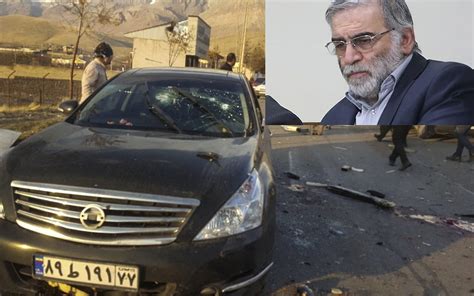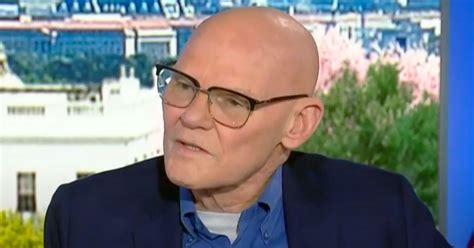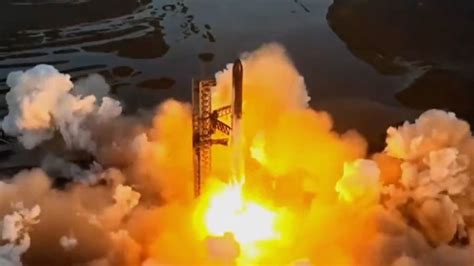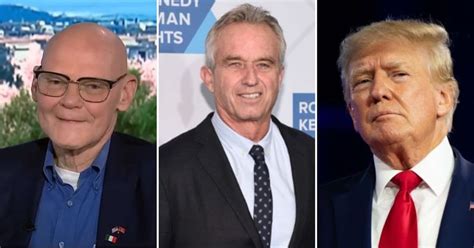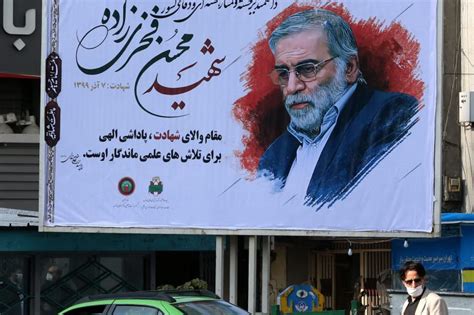
A sophisticated weapon, potentially Israeli-made, was reportedly used in the assassination of Iranian nuclear scientists, according to an exclusive report by Jewish Chronicle that examined a series of targeted killings within Iran’s nuclear program. The report details how the assassinations, which have plagued Iran’s nuclear ambitions for years, involved advanced technological methods and precise execution.
The Jewish Chronicle report identified specific instances and characteristics of the weapons used, suggesting that these were not random acts of violence but carefully planned operations utilizing cutting-edge technology. While Israel has not officially claimed responsibility, the report points towards its involvement based on intelligence sources and the nature of the weaponry deployed.
Details of the Assassinations and Weaponry
The Jewish Chronicle article provides an in-depth look at several key assassinations targeting Iranian nuclear scientists and officials connected to the country’s nuclear program. The precision and technological sophistication of the operations have led many to suspect involvement by foreign intelligence agencies, particularly Israel’s Mossad.
One of the most notable incidents was the assassination of Mohsen Fakhrizadeh, often described as the “father” of Iran’s nuclear program, in November 2020. According to the Jewish Chronicle, Fakhrizadeh was killed by a remotely controlled, AI-powered machine gun mounted on a pickup truck. The report states that the weapon, described as a “highly advanced, autonomous killing device,” was able to identify Fakhrizadeh and carry out the assassination with remarkable accuracy, even compensating for wind and other environmental factors. This suggests the weapon was equipped with sophisticated sensors and targeting systems.
The report detailed that the assassination involved a team of agents who prepared the site and logistics but did not directly engage in the killing. The machine gun was reportedly smuggled into Iran in pieces and then reassembled for the operation. This level of planning and execution points to significant resources and intelligence capabilities.
Another incident highlighted in the report involves the use of explosive devices disguised as everyday objects. These devices were designed to detonate with precision, minimizing collateral damage while effectively eliminating the intended target. The Jewish Chronicle report emphasized the difficulty in tracing the origin of these devices, further suggesting the involvement of a highly skilled and well-funded organization.
The report also detailed a separate incident where a scientist was poisoned. The method used was designed to induce a delayed reaction, making it difficult to trace the cause of death back to the poisoning.
Suspicions of Israeli Involvement
While Israel has maintained a policy of ambiguity regarding its involvement in these assassinations, numerous factors point towards its potential role. Israel has long viewed Iran’s nuclear program as an existential threat and has repeatedly stated its determination to prevent Iran from acquiring nuclear weapons.
The Jewish Chronicle report cites intelligence sources who believe that Israel’s Mossad was responsible for the assassinations. These sources highlight the Mossad’s history of conducting covert operations targeting individuals deemed threats to Israel’s national security. The level of technological sophistication and operational expertise required for these assassinations further supports the theory of Israeli involvement.
Additionally, the report notes the strategic value of disrupting Iran’s nuclear program by targeting its key scientists and officials. The assassinations have not only eliminated experienced personnel but have also created an atmosphere of fear and uncertainty within the program, potentially slowing its progress.
The international community has responded to these assassinations with varying degrees of condemnation and concern. Iran has consistently blamed Israel for the killings and has vowed to retaliate. The United States has urged restraint and has called for a de-escalation of tensions in the region.
Impact on Iran’s Nuclear Program
The assassinations of Iranian nuclear scientists have undoubtedly had an impact on Iran’s nuclear program. The loss of experienced personnel, particularly those with specialized knowledge, has created significant challenges for the program. The atmosphere of fear and uncertainty has also likely affected morale and productivity.
However, the extent to which the assassinations have set back Iran’s nuclear program is a matter of debate. Some analysts argue that the program has become more decentralized and resilient in response to the threat of targeted killings. Others suggest that the assassinations have only delayed the program and that Iran remains determined to pursue its nuclear ambitions.
The Jewish Chronicle report suggests that the assassinations have had a more significant impact than publicly acknowledged. The report cites sources who claim that the killings have disrupted key projects and have forced Iran to take extensive security measures, further hindering its progress.
Despite these setbacks, Iran has continued to enrich uranium and develop advanced centrifuges. The country has also increased its cooperation with international organizations, such as the International Atomic Energy Agency (IAEA), in an effort to demonstrate the peaceful nature of its nuclear program.
Geopolitical Implications
The assassinations of Iranian nuclear scientists have further complicated the already complex geopolitical landscape of the Middle East. The tensions between Iran and Israel have escalated, and the risk of a direct conflict has increased.
The Jewish Chronicle report emphasizes that the assassinations are part of a broader strategy by Israel to contain Iran’s regional influence. This strategy includes not only covert operations but also diplomatic efforts and military exercises.
The United States has attempted to mediate between Iran and Israel, but its efforts have been largely unsuccessful. The Biden administration has expressed its commitment to preventing Iran from acquiring nuclear weapons, but it has also emphasized the importance of resolving the issue through diplomacy.
The assassinations have also had an impact on the ongoing negotiations over Iran’s nuclear program. Iran has demanded that sanctions be lifted as a condition for returning to compliance with the nuclear agreement, while the United States has insisted that Iran first take steps to curb its nuclear activities.
The Jewish Chronicle report suggests that the assassinations have made it more difficult to reach a diplomatic solution. The report cites sources who believe that Iran is less likely to compromise in negotiations if it feels that it is under attack.
Analysis of Weaponry
The weaponry reportedly used in the assassinations is of significant interest. The remote-controlled machine gun used in the assassination of Mohsen Fakhrizadeh is particularly noteworthy. Its ability to operate autonomously and compensate for environmental factors suggests a high level of technological sophistication.
The Jewish Chronicle report indicates that the weapon was likely developed by a foreign intelligence agency, possibly with the assistance of private companies. The report also notes that the weapon’s components were likely sourced from multiple countries, making it difficult to trace its origin.
The use of explosive devices disguised as everyday objects is another indication of the sophistication of the operations. These devices require careful planning and execution to ensure that they detonate with precision and minimize collateral damage.
The Jewish Chronicle report suggests that the devices were likely manufactured using advanced techniques and materials. The report also notes that the devices were designed to be difficult to detect, further suggesting the involvement of a highly skilled and well-funded organization.
Reactions from Iran
Iran has consistently blamed Israel for the assassinations of its nuclear scientists and has vowed to retaliate. Iranian officials have described the assassinations as acts of terrorism and have called on the international community to condemn them.
The Jewish Chronicle report indicates that Iran has taken steps to increase security around its nuclear facilities and personnel. The report also notes that Iran has intensified its intelligence gathering efforts in an attempt to identify those responsible for the assassinations.
Despite its threats of retaliation, Iran has so far refrained from launching a direct attack on Israel. However, the risk of a retaliatory attack remains high, and the situation could escalate quickly.
Global Perspective
The assassinations of Iranian nuclear scientists have drawn condemnation from some countries and tacit approval from others. Many countries have expressed concern about the destabilizing effect of the assassinations on the region.
The Jewish Chronicle report suggests that the assassinations have divided the international community. Some countries believe that Israel has a right to defend itself against Iran’s nuclear program, while others believe that the assassinations are illegal and counterproductive.
The United Nations has called for an investigation into the assassinations, but its efforts have been hampered by a lack of cooperation from both Iran and Israel.
Conclusion
The Jewish Chronicle report provides valuable insights into the assassinations of Iranian nuclear scientists. The report highlights the sophistication of the operations and the potential involvement of Israel’s Mossad.
The assassinations have undoubtedly had an impact on Iran’s nuclear program, but the extent of that impact is a matter of debate. The assassinations have also complicated the geopolitical landscape of the Middle East and have increased the risk of a direct conflict between Iran and Israel.
The Jewish Chronicle report underscores the need for a diplomatic solution to the Iranian nuclear issue. The report also highlights the importance of de-escalating tensions in the region and preventing further acts of violence.
The ongoing shadow war between Iran and Israel, characterized by covert operations and targeted killings, poses a significant threat to regional stability. The international community must work together to find a peaceful resolution to the conflict and prevent further escalation.
Frequently Asked Questions (FAQ)
-
What does the Jewish Chronicle report claim about the assassinations of Iranian nuclear scientists?
The Jewish Chronicle report claims that a sophisticated weapon, potentially Israeli-made, was used in the assassinations of Iranian nuclear scientists. It details the use of advanced technological methods and precise execution in these targeted killings, pointing towards the involvement of a foreign intelligence agency, possibly Israel’s Mossad. The report highlights specific instances like the assassination of Mohsen Fakhrizadeh, who was killed by a remotely controlled, AI-powered machine gun.
-
What evidence suggests Israeli involvement in these assassinations?
While Israel has not officially claimed responsibility, the report cites intelligence sources who believe that Israel’s Mossad was responsible. Factors include the Mossad’s history of covert operations targeting perceived threats to Israel, the level of technological sophistication and operational expertise required for these assassinations, and the strategic value of disrupting Iran’s nuclear program. The report also notes the weaponry used was specifically designed and made to complete the tasks and avoid detection.
-
How have these assassinations impacted Iran’s nuclear program?
The assassinations have led to the loss of experienced personnel, creating challenges for the program and likely affecting morale and productivity. The Jewish Chronicle report suggests that the killings have disrupted key projects and forced Iran to take extensive security measures, further hindering its progress. However, the extent to which the assassinations have permanently set back Iran’s nuclear program is a subject of debate.
-
What kind of weaponry was reportedly used in these assassinations?
The report details the use of a remotely controlled, AI-powered machine gun in the assassination of Mohsen Fakhrizadeh, capable of autonomous operation and compensation for environmental factors. Explosive devices disguised as everyday objects were also reportedly used, designed to detonate with precision and minimize collateral damage. The use of poison was also reported. The weaponry is reported to be highly sophisticated.
-
What has been the international reaction to these assassinations, and what are the geopolitical implications?
The international community has responded with varying degrees of condemnation and concern. Iran has blamed Israel and vowed to retaliate, while the United States has urged restraint and called for de-escalation. The assassinations have complicated the geopolitical landscape of the Middle East, escalating tensions between Iran and Israel and increasing the risk of direct conflict. They have also impacted negotiations over Iran’s nuclear program, making it more difficult to reach a diplomatic solution.






